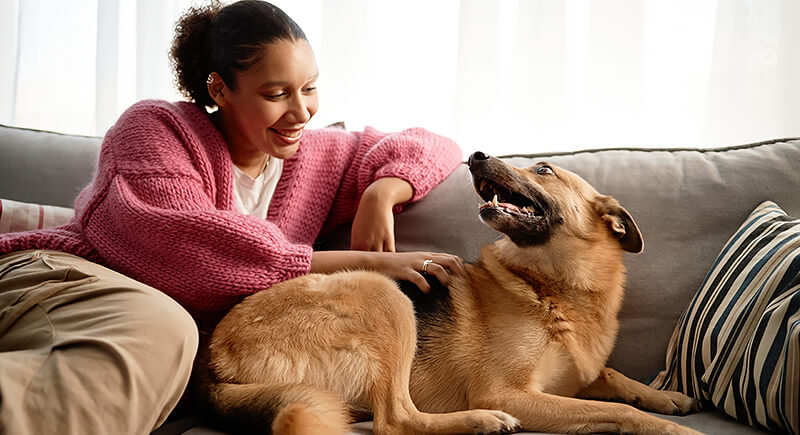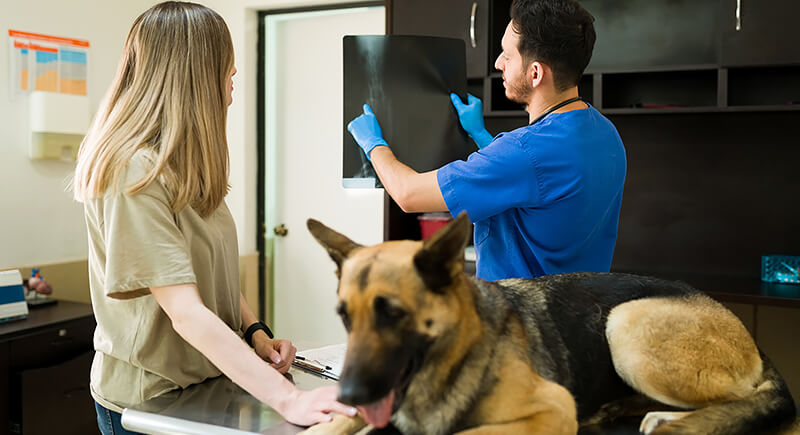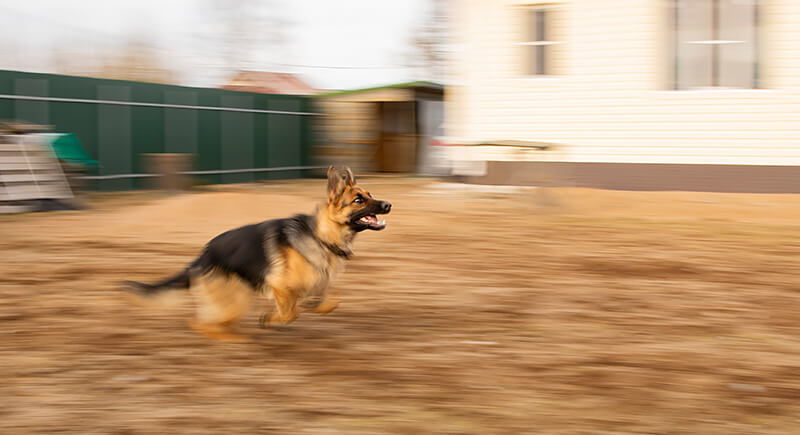10 Things You’ll Wish Someone Had Told You Before Getting a German Shepherd
Getting a German Shepherd is a big decision. They’re loyal, smart, and easy to love—but raising one isn’t always simple. New owners often feel caught off guard by how much time, energy, and patience it takes. These are the things many wish they’d known sooner—before the leash, the crate, or the vet bills.
Their Minds Don’t Turn Off

Credit: iStockphoto
This breed doesn’t do boredom well. They’re always scanning, thinking, anticipating. Without daily challenges—mental or physical—they’ll invent their own entertainment. That could mean chewing a baseboard, barking at shadows, or rearranging your flower bed. Regular training, problem-solving games, or even new walking routes help give them a productive outlet.
Puppy Teeth Can Be Brutal

Credit: iStockphoto
Teething hurts—for both of you. Their baby teeth are tiny daggers, and during this phase, nothing is safe: furniture, sleeves, your fingers. It’s normal behavior, but that doesn’t make it pleasant. Chew toys help, but consistency and redirection are key.
Socializing Can’t Wait

Credit: iStockphoto
You don’t have months to ease them in. Early exposure to people, dogs, kids, and chaotic environments lays the foundation for lifelong confidence. Skip this step, and you may be raising a nervous, reactive dog instead of the stable companion you were hoping for.
A Walk Isn’t Enough

Credit: iStockphoto
A few laps around the block won’t cut it. These dogs were bred for work. They need real tasks: structured games, fetch with rules, agility drills, or off-leash hikes (when safe). Physical movement is great, but if their brains aren’t working, too, they’ll burn energy in all the wrong ways.
Fur Everywhere

Credit: iStockphoto
You’ll find it on the couch, in your cereal, and somehow—inside your shoes. They shed constantly, and twice a year, it gets wild. Daily brushing helps a little, but fur will still show up in places you’ve never cleaned before.
They Pick Up on Everything

Credit: iStockphoto
Your Shepherd will notice your raised voice, tense shoulders, and even your sighs. These dogs are emotionally tuned in. If you’re anxious, they might mirror that. If you’re calm, they’ll likely ease up. Your energy teaches them as much as your words do.
Training Is Never “Done”

Credit: iStockphoto
They might ace sit, stay, and come by six months. But stop working with them, and you’ll see the difference. Shepherds thrive on structure and challenge. Without consistent practice, they’ll find loopholes or test your limits.
Vet Costs Add Up Fast

Credit: iStockphoto
Even with good breeding and early care, German Shepherds are prone to hip dysplasia, digestive issues, and allergies. Routine check-ups, specialized diets, and surprise bills are all part of the package. Insurance helps, but being financially prepared makes a huge difference in the long term.
Loyalty Can Get Loud

Credit: iStockphoto
These dogs bond hard, which is great until a friend walks in the door. Without clear boundaries, loyalty can morph into suspicion. Barking, growling, or guarding furniture aren’t acts of aggression—they’re the result of unclear rules. Regular social exposure and guest training are a must.
Roughhousing Isn’t Risk-Free

Credit: iStockphoto
With their size and strength, even playful pouncing can knock over a kid or frighten another dog. Teach limits, supervise interactions, and reward calm behavior. Playtime is just as crucial as safety.
Your Schedule is About to Change

Credit: iStockphoto
Every outing, every meal, every weekend plan will include your four-legged friend. You’ll check the weather for walk times. You’ll Google dog-friendly patios. Eventually, it feels natural, but the shift is real.
No Two Shepherds Are the Same

Credit: iStockphoto
While one Shepherd may be a fearless explorer, the next could be a cautious shadow. Temperament isn’t guaranteed, even with the same breeder. Some love kids. Others need space. Training matters—but so does personality. Learn who your dog actually is, and do not compare with others.
Rules Have to Stick

Credit: iStockphoto
Shepherds are pattern-watchers. Let them on the bed once, and they’ll assume it’s allowed forever. Inconsistency confuses them and makes it difficult for you to re-establish rules. Decide your boundaries early on, and stick with them—even when it’s tempting not to.
They’re Gonna Bark

Credit: iStockphoto
Your dog is going to bark at people, leaves, and even the delivery truck three doors down. It’s just part of the deal. You can teach them when to quiet down, but expecting silence is setting yourself up for frustration—especially in apartments or tight neighborhoods.
Food Quality Changes Everything

Credit: iStockphoto
Their skin, energy, digestion—even behavior—can shift based on what they eat. Cheap food often leads to itchy coats, upset stomachs, or sluggishness. You might have to test a few formulas, but once you find what works, the difference is obvious.
Maturity Doesn’t Happen Overnight

Credit: iStockphoto
They may look like adults by their first birthday, but many still act like oversized puppies well into year two. Expect impulsive moments, overexcitement, or sensitivity to sounds. Mental maturity takes time. If you try to rush it, you’ll both end up frustrated.
The Bond Runs Deep

Credit: iStockphoto
Once they trust you, it’s not casual. They’ll follow you from room to room, rest beside your feet, and watch your every move. It’s connection and loyalty together. With that bond comes responsibility. They rely on you every day. And honestly, you’ll start relying on them, too.